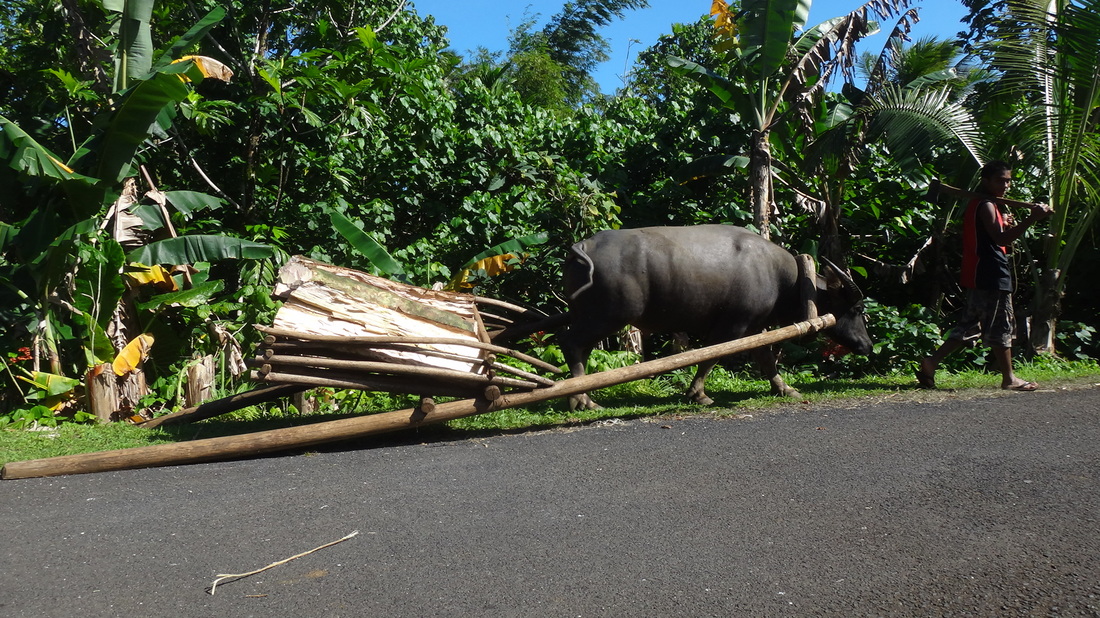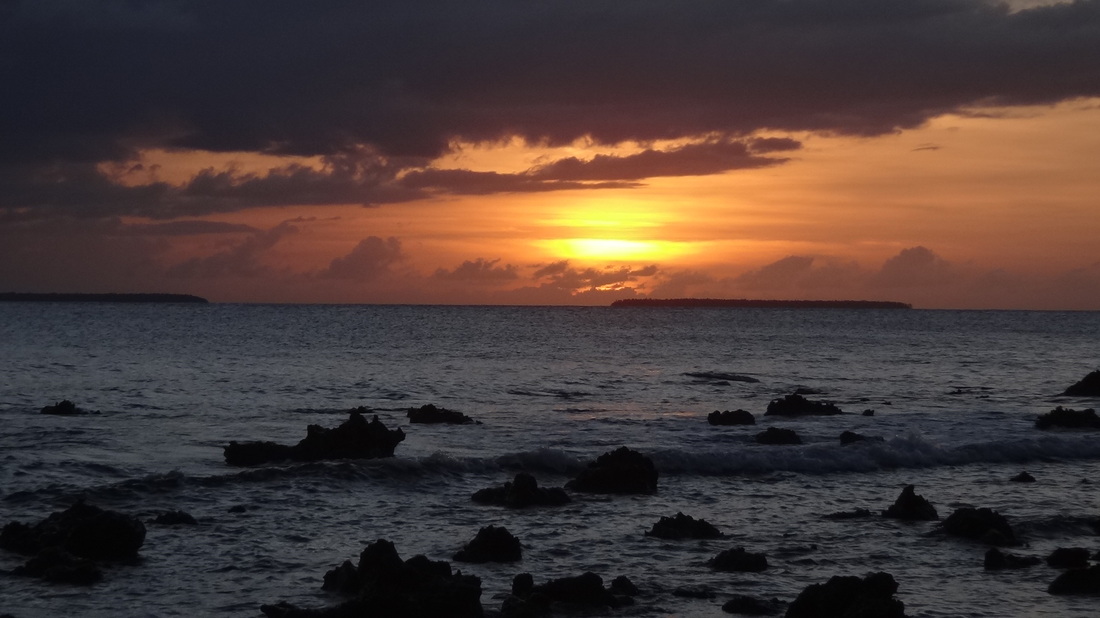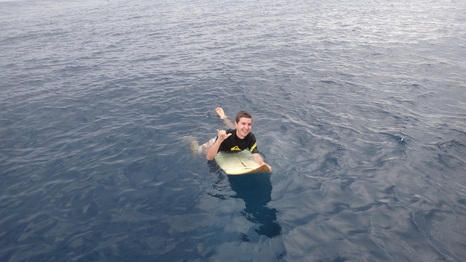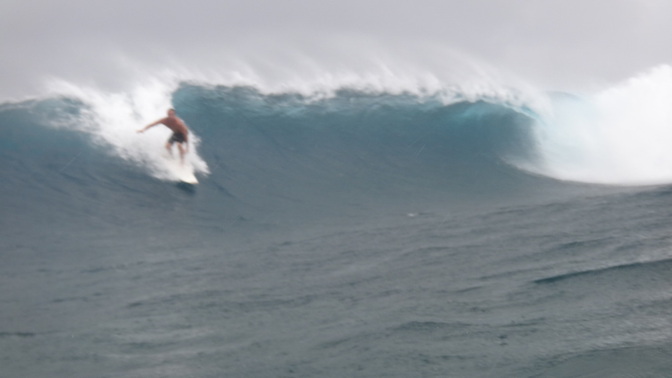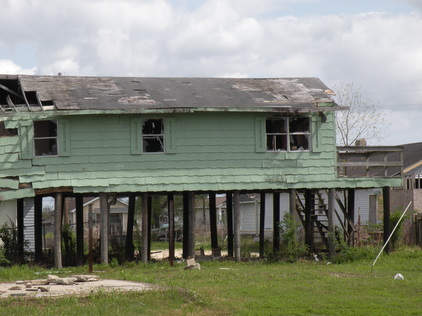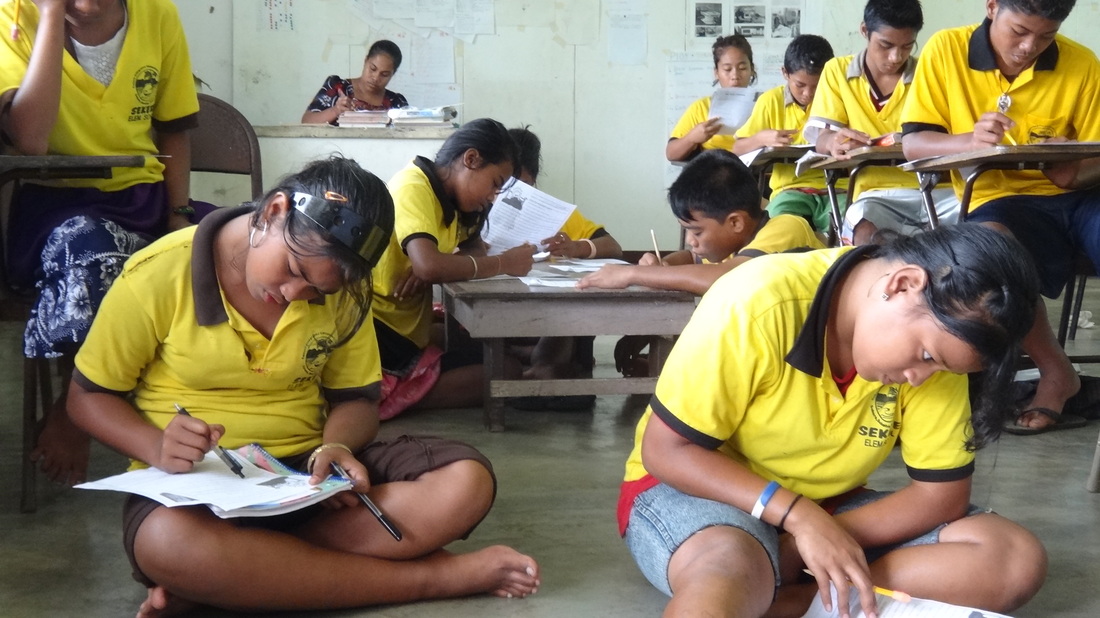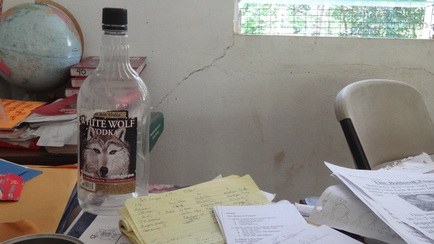
A teacher's desk. It's probably just water in there. Probably...
I have written extensively of the many roadblocks and frustrations we encounter throughout our work here in Pohnpei, but trust me, I barely scratch the surface. I knew when I came here it wasn’t going to be easy and our collective perseverance and resolve would be tested. Of course though, knowing something in your head is entirely different than experiencing it firsthand. I remember the exact moment when all this hit home.
Way back in October, a few weeks after I arrived, Mr. B and I were in a slight state of shock with just how bad the schools really are. We were sitting in the car about to leave from a school that had only one teacher for three grades. Most of the kids were sitting around or had gone home, even though it was only 11:00. Despite the negative circumstances Mr. B was often making jokes and laughing about the whole thing. I said while laughing along with him, “Mr. B, what are we going to do?!? Why are you laughing?!?” His response was priceless and classic Mr. B ---
Way back in October, a few weeks after I arrived, Mr. B and I were in a slight state of shock with just how bad the schools really are. We were sitting in the car about to leave from a school that had only one teacher for three grades. Most of the kids were sitting around or had gone home, even though it was only 11:00. Despite the negative circumstances Mr. B was often making jokes and laughing about the whole thing. I said while laughing along with him, “Mr. B, what are we going to do?!? Why are you laughing?!?” His response was priceless and classic Mr. B ---
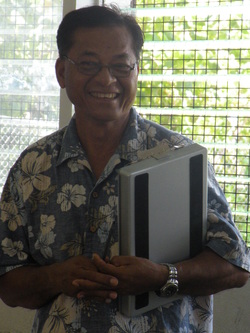
“If you do not make things funny, you will get heart attack.”
While his response obviously made me laugh, there is so much truth to it. This attitude has served Mr. B extremely well throughout his life on Pohnpei working to help his people. Indeed, he very well might have had a heart attack by now if he didn’t have this approach!
Today we went to our largest adopted school which has six classes – two classes each for 6th, 7th and 8th grade. There were only three teachers and the principal wasn’t present. This left each teacher responsible for their 20 some kids, plus the 20 some other students. When the teachers are left with this predicament they stay with their class and give the other class a bunch of busy work a few times throughout the day. You can imagine how productive a group of 6th graders are when left alone to do busy work from a textbook. This happens all the time on Pohnpei – I have never heard of substitute teachers.
When we got to the 8th grade classroom, and saw that there was only one teacher for the two classes, I had to step outside the classroom and remember Mr. B’s wisdom. I had seen both 8th grade teachers earlier that morning, but one left for Kolonia during lunch. Heck, without any principal, who is there to enforce anything? It's worth noting that this is one of our better schools!
Despite all the frustration, I have learned, and rather quickly, that you can’t expect change to happen quickly, if at all. What I mean by this is that change can take years, even decades. In order to survive days like today, it is critical to have an even-keeled mindset. And it helps for personal health, when working in a place like Pohnpei, to take everything with a grain of salt, and if at all possible, laugh about the craziness.
There are countless lessons I’ll take with me when I leave this island, and this will be at the top of the list. We all encounter difficulties but if we can laugh about it and recognize how imperfect this world is and all the people in it, then we’ll be better for it. And less likely to get a heart attack.
Today we went to our largest adopted school which has six classes – two classes each for 6th, 7th and 8th grade. There were only three teachers and the principal wasn’t present. This left each teacher responsible for their 20 some kids, plus the 20 some other students. When the teachers are left with this predicament they stay with their class and give the other class a bunch of busy work a few times throughout the day. You can imagine how productive a group of 6th graders are when left alone to do busy work from a textbook. This happens all the time on Pohnpei – I have never heard of substitute teachers.
When we got to the 8th grade classroom, and saw that there was only one teacher for the two classes, I had to step outside the classroom and remember Mr. B’s wisdom. I had seen both 8th grade teachers earlier that morning, but one left for Kolonia during lunch. Heck, without any principal, who is there to enforce anything? It's worth noting that this is one of our better schools!
Despite all the frustration, I have learned, and rather quickly, that you can’t expect change to happen quickly, if at all. What I mean by this is that change can take years, even decades. In order to survive days like today, it is critical to have an even-keeled mindset. And it helps for personal health, when working in a place like Pohnpei, to take everything with a grain of salt, and if at all possible, laugh about the craziness.
There are countless lessons I’ll take with me when I leave this island, and this will be at the top of the list. We all encounter difficulties but if we can laugh about it and recognize how imperfect this world is and all the people in it, then we’ll be better for it. And less likely to get a heart attack.
